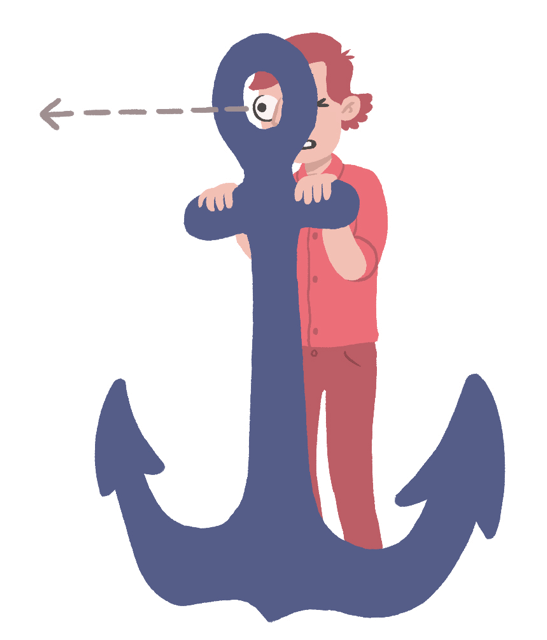
Anchoring

The anchoring effect is a cognitive bias whereby an individual's decisions are influenced by a particular reference point or 'anchor'. Once the value of the anchor is set, subsequent arguments or estimates made by an individual may change from what they would have otherwise been without the anchor. For example, an individual may be more likely to purchase a car if it is placed alongside a more expensive model (the anchor). Prices discussed in negotiations that are lower than the anchor may seem reasonable, perhaps even cheap to the buyer, even if said prices are still relatively higher than the actual market value of the car.
Relevant Academic Papers
- Sherif, Muzafer; Taub, Daniel; Hovland, Carl I. (1958). "Assimilation and contrast effects of anchoring stimuli on judgments". Journal of Experimental Psychology. 55 (2): 150–155.
- Tversky, A.; Kahneman, D. (1974). "Judgment under Uncertainty: Heuristics and Biases" (PDF). Science. 185 (4157): 1124–1131.





